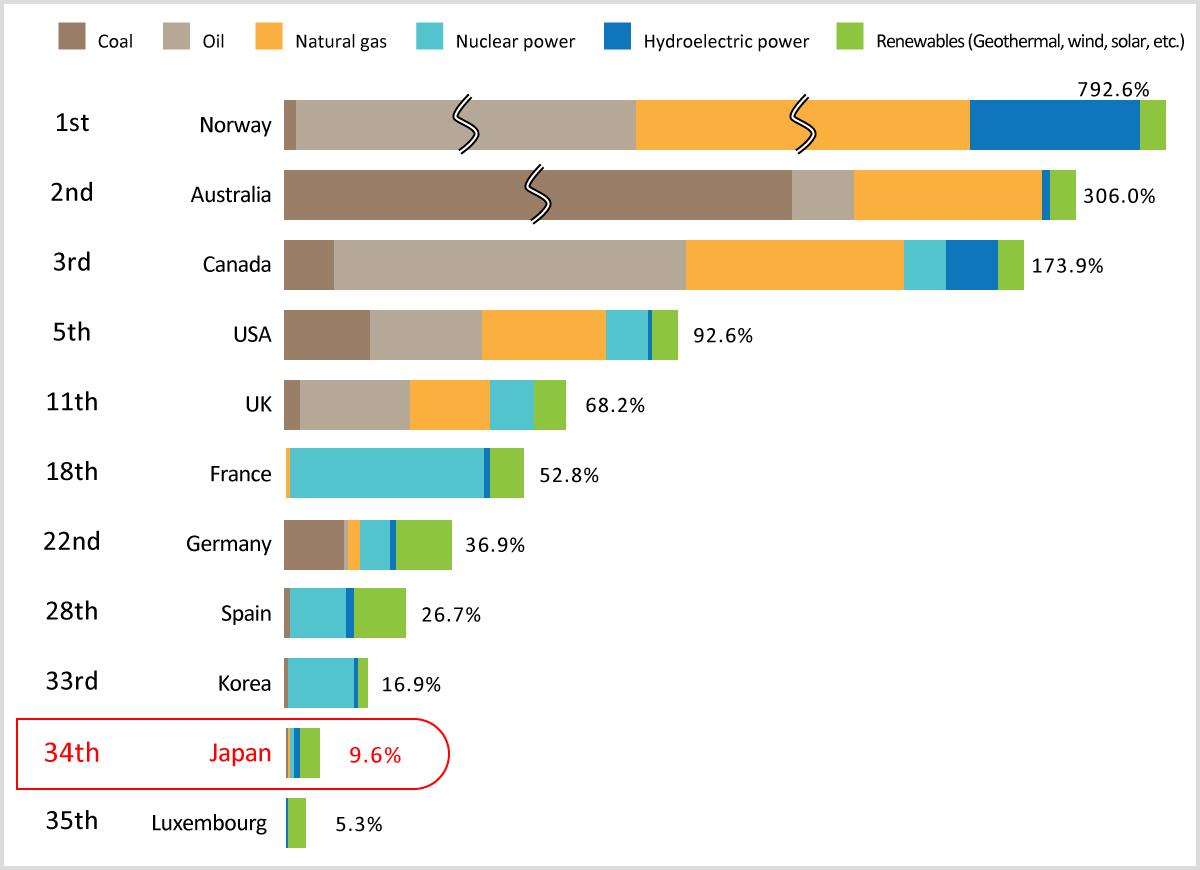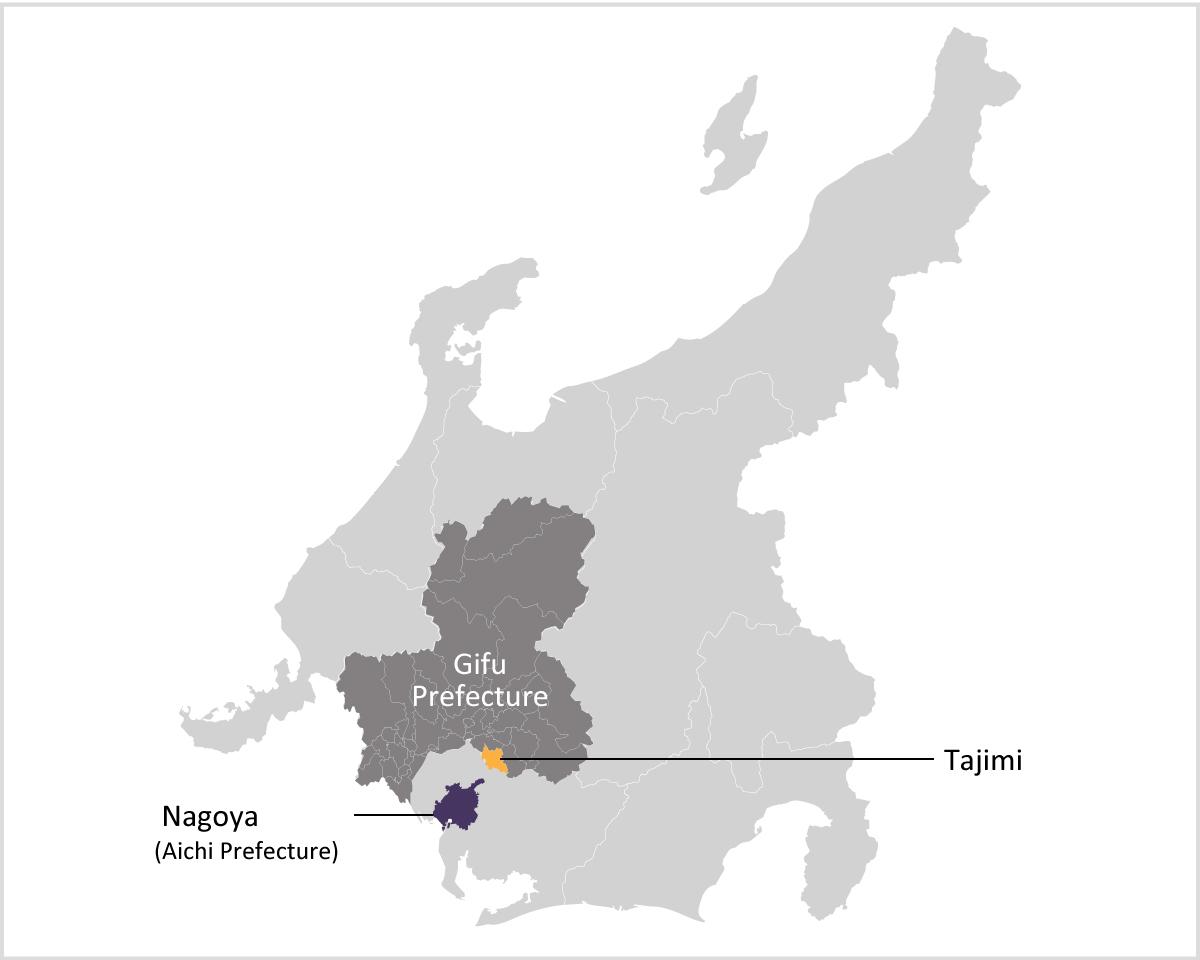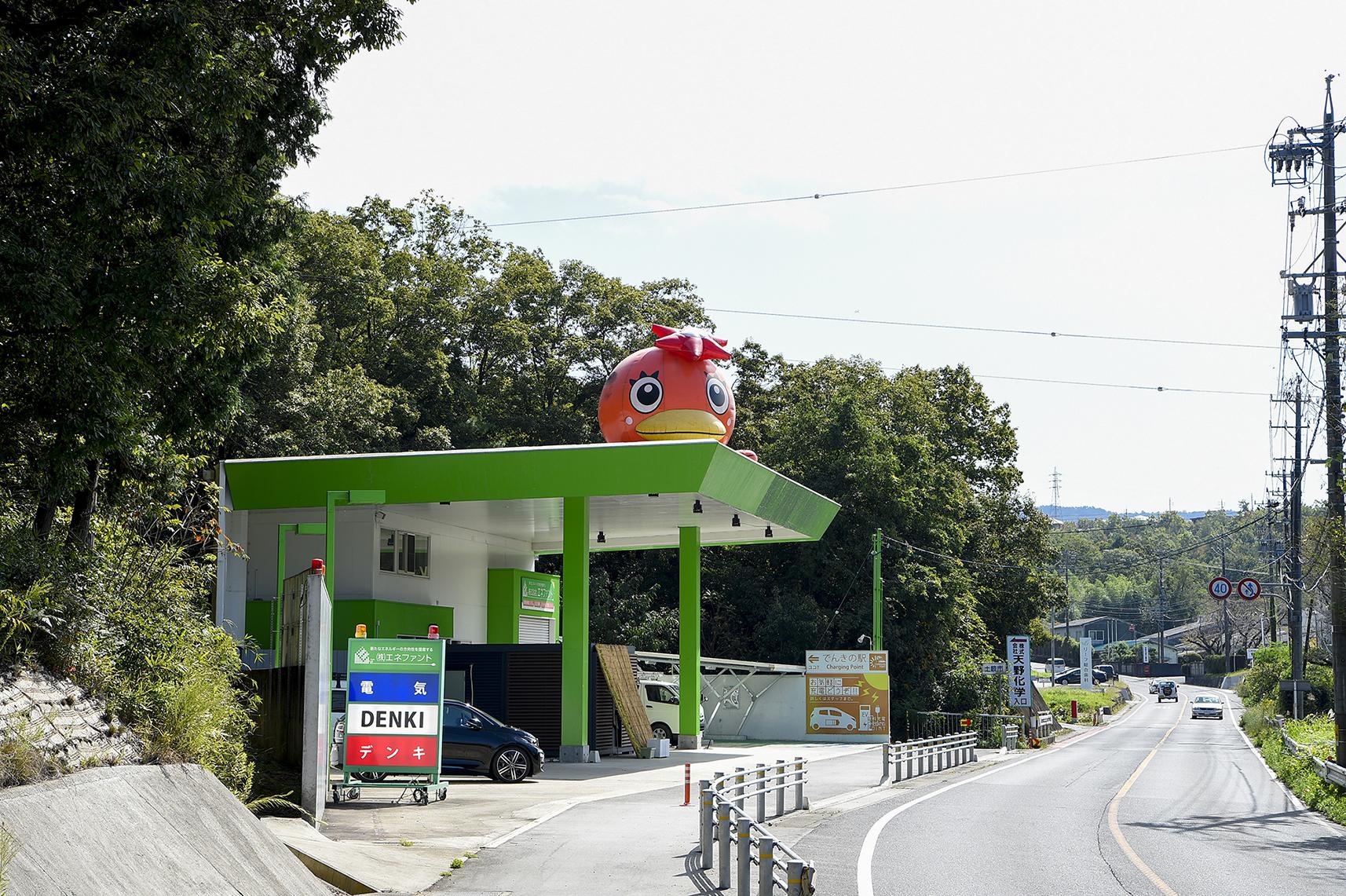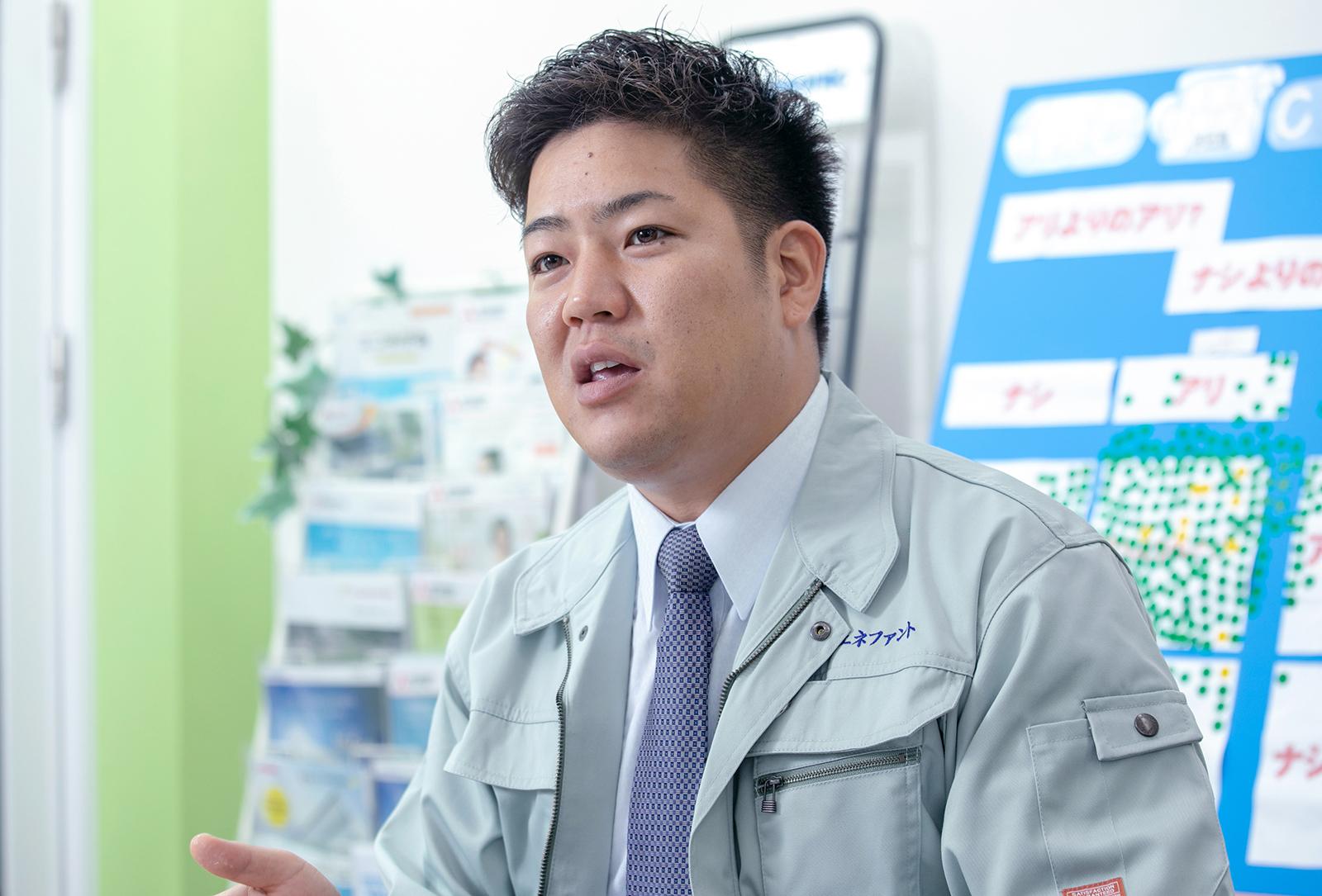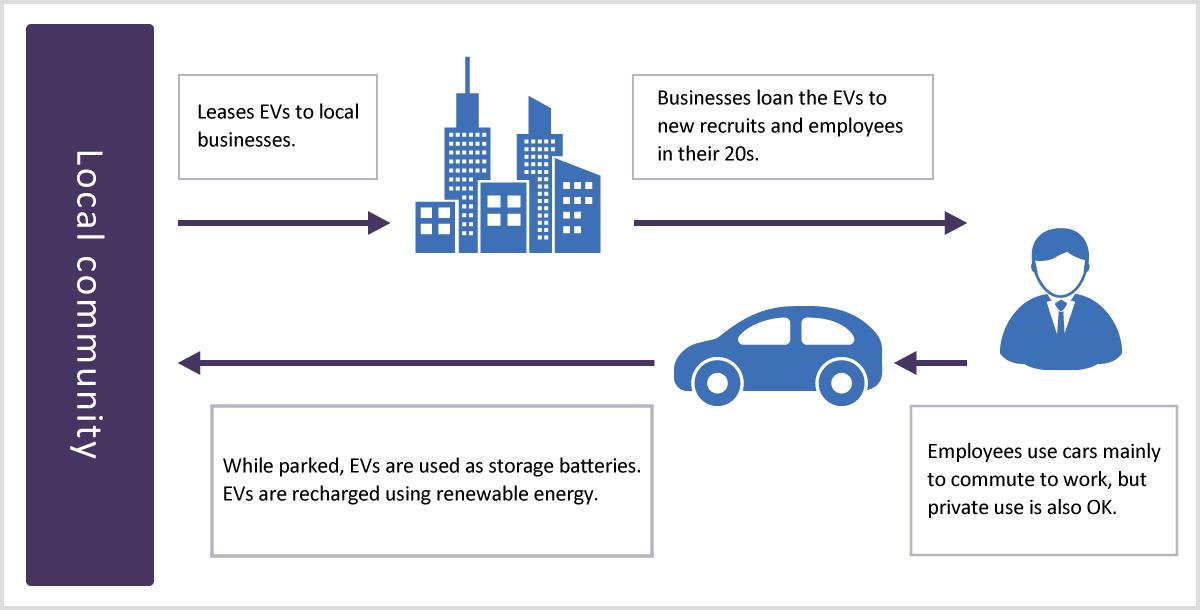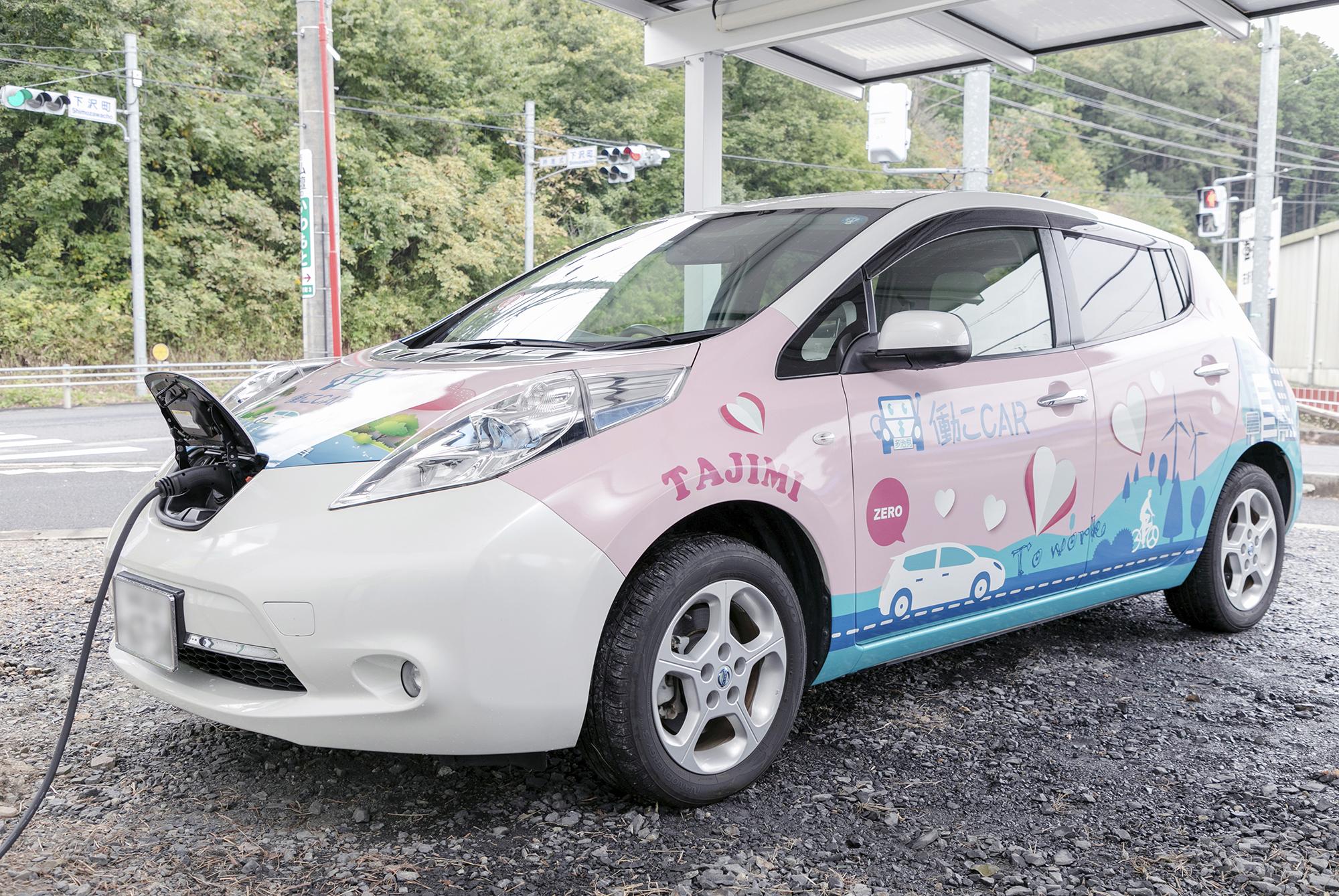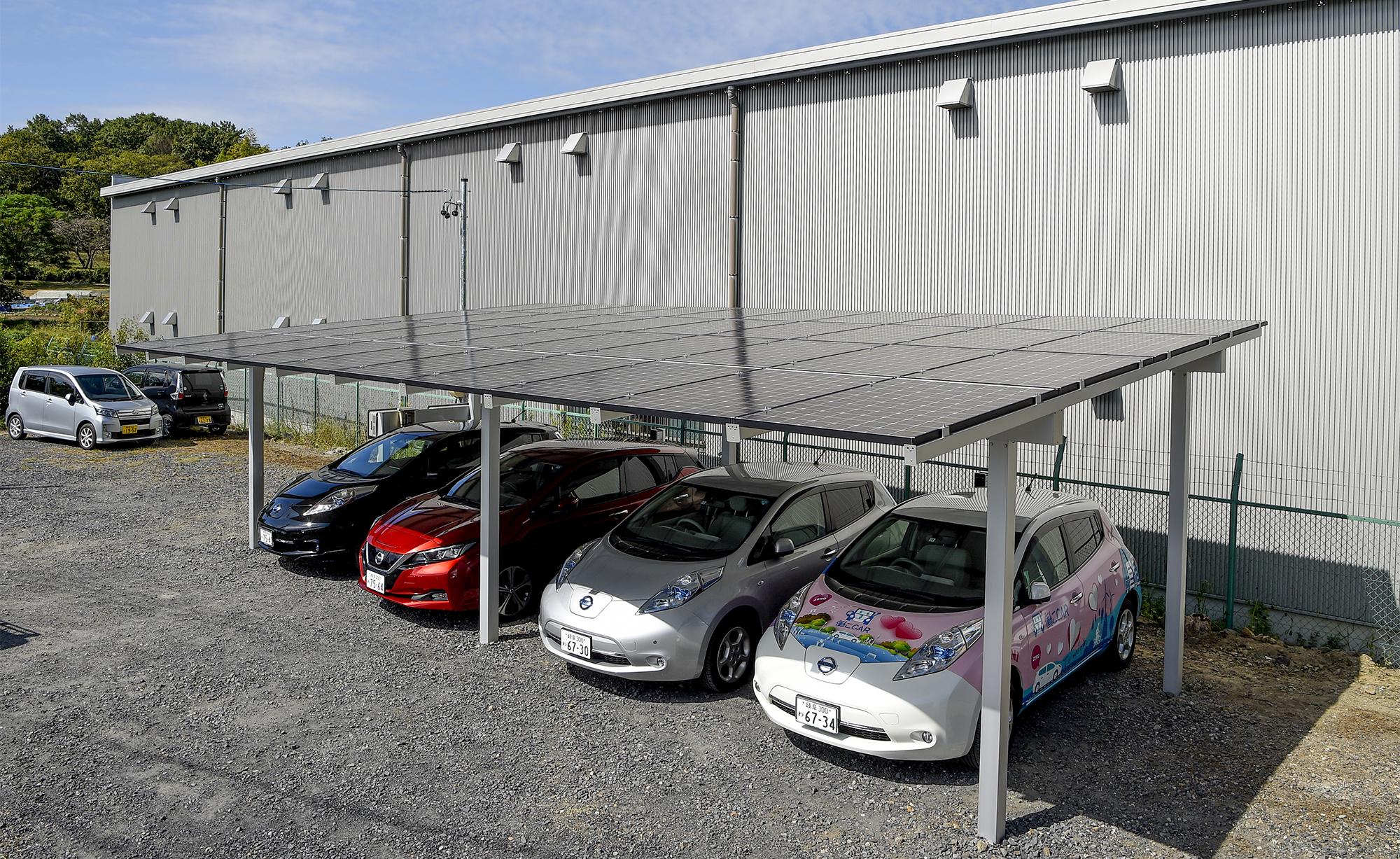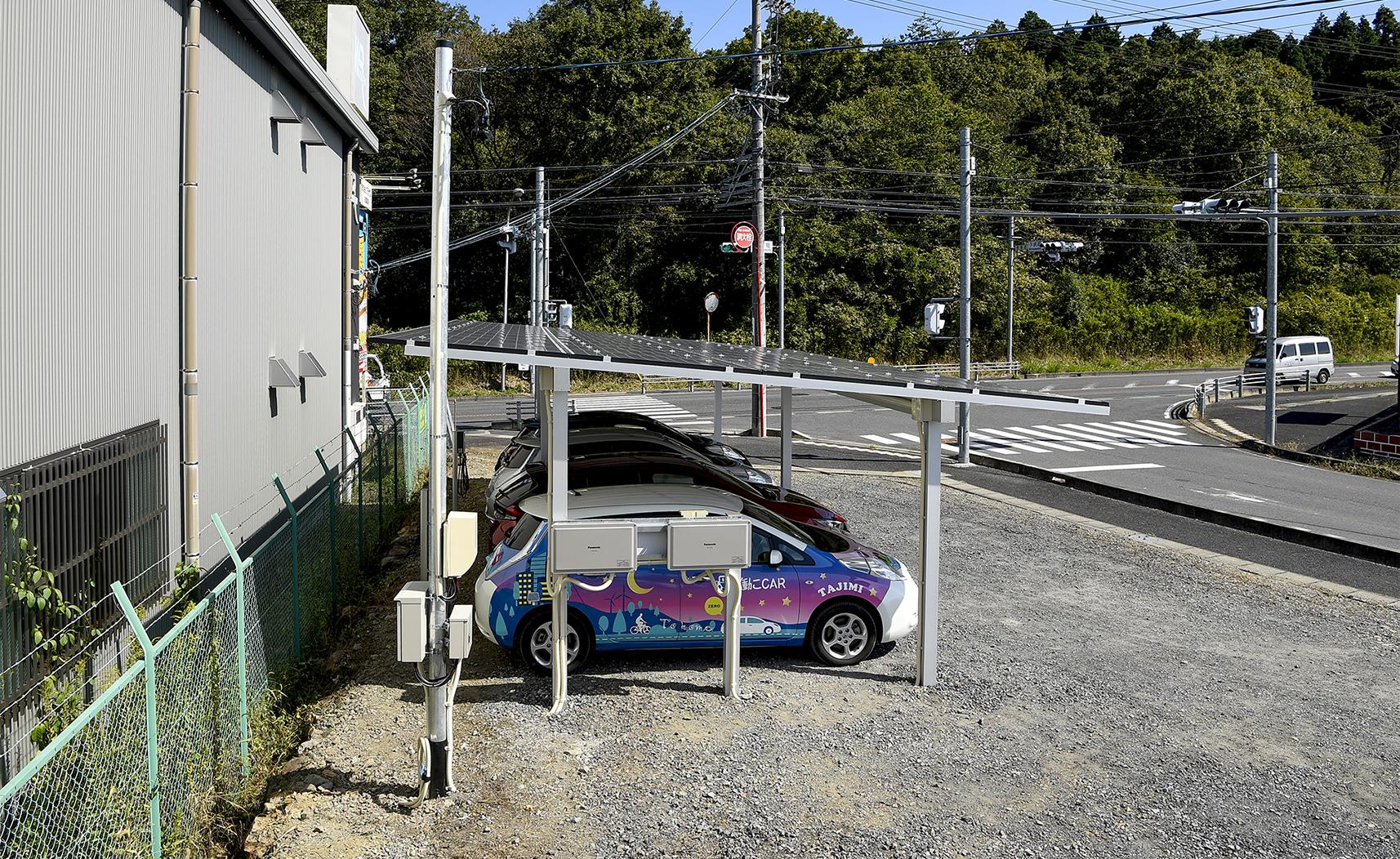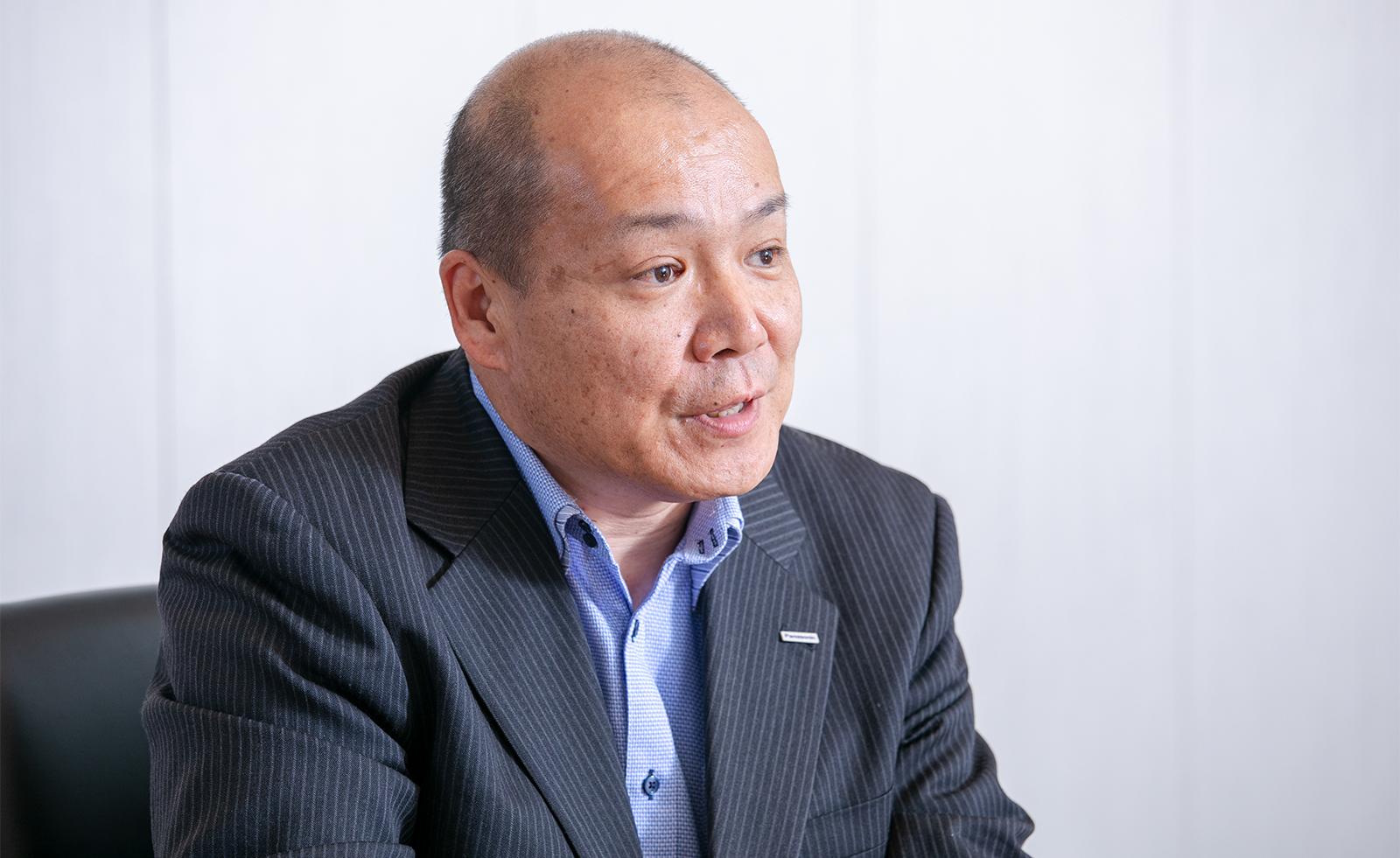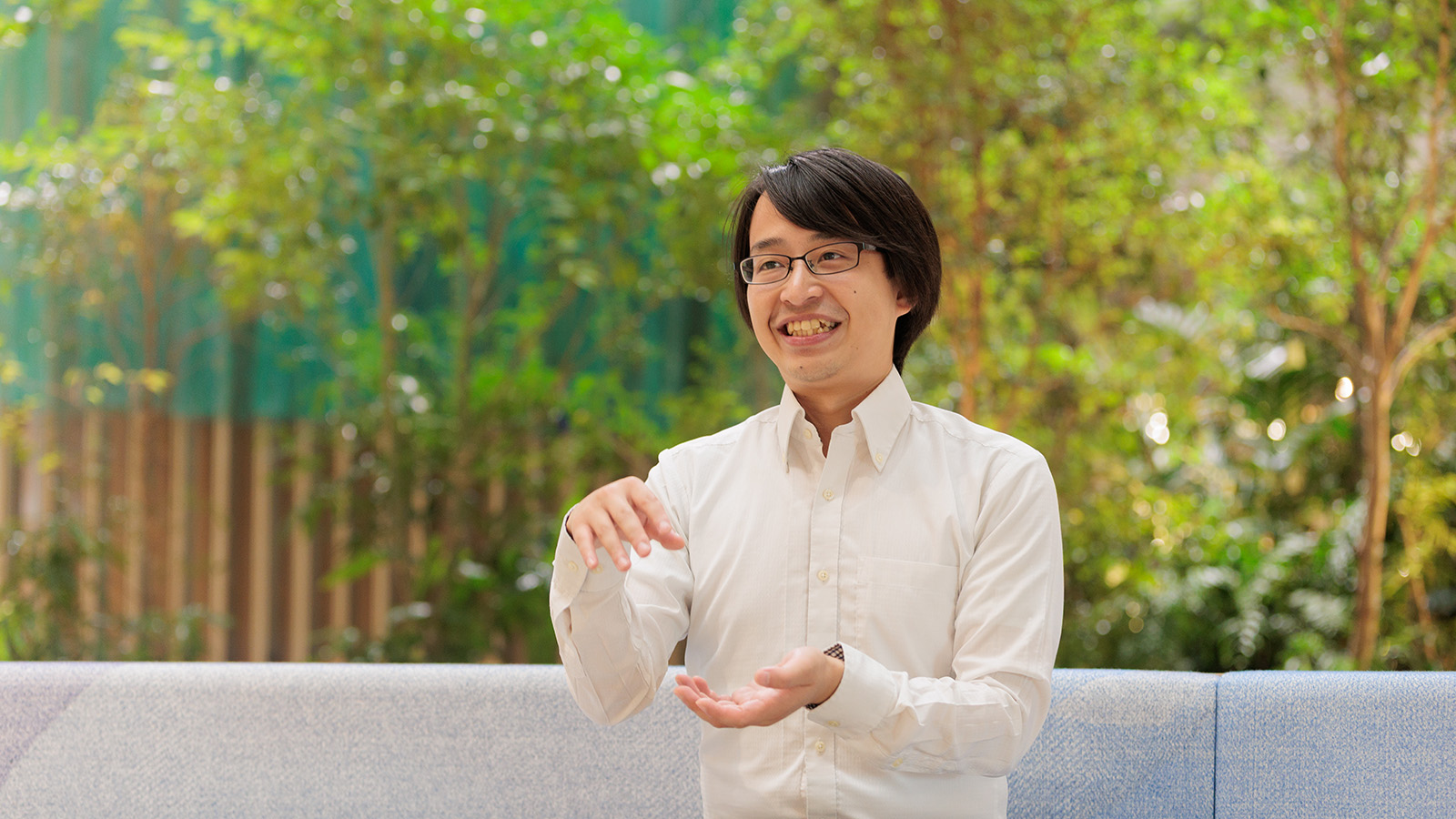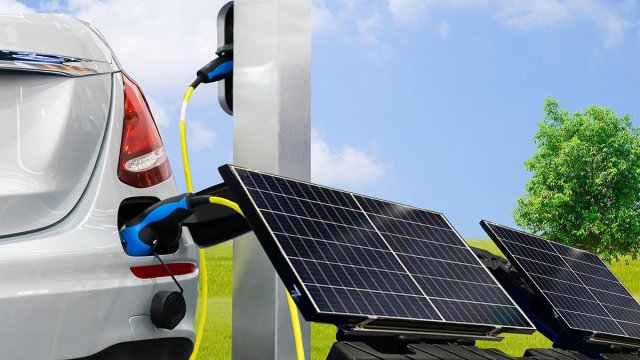
Japan is one of the largest consumers of energy in the world, but, as a country, it does not even supply 10% of the energy it needs. Because Japan must rely on imports from overseas for most of its energy resources, improving the nation's energy self-sufficiency is an important theme. Within that conversation, a community energy-cycling project that is driven by solar power has been launched in Tajimi City, Gifu Prefecture. This article tells the whole story about this project including the community activation hopes it is fueling.
Summary
- A "community energy venture" in Tajimi City, Gifu Prefecture has started building an energy cycling system in their area based on solar power.
- In this system, a pivotal point to consuming and storing energy is the use of electric vehicles (EV). The EVs are also being leased at a low price to encourage young people to seek jobs and settle down in the area.
- Panasonic is constructively supporting the project first and foremost by providing the necessary hardware, but this next-generation model of energy cycling is being developed through teamwork.
The country as a whole has high hopes and expectations in renewable energy.
9.6%. This is all that Japan's energy self-sufficiency was in 2017 according to the Agency for Natural Resources and Energy. Considering that this number is 306.0% for Australia, 173.9% for Canada and 92.6% for the US, it shows just how fragile the energy situation in Japan is.
Given the situation, the 5th Basic Energy Plan announced on July 3, 2018 reflected a policy that groups renewable energies (hereinafter "renewables") like solar power and wind power as an important energy source. The aim is to increase the share of renewables in an energy mix that includes power generation fired by fossil fuels (oil, coal and natural gas) and nuclear power, to 22-24% by 2030. Renewables will be increasingly viewed with importance going forward because the significant reduction in CO2 emissions they bring falls in line with the worldwide campaign to wean society off of carbon.
Solar power is a key player in the plan. In 2009, Japan began a Feed-In Tariff (FIT) system that allowed solar power producers to sell their surplus power. Since then the number of participating producers has increased year after year. However, after November 2019, the 10-year program ended for some households. Referred to as the "After-FIT" dilemma, these households are faced with the choice of finding new buyers or using the power themselves. In other words, solar power is at a new fork in the road.
This article introduces a novel way for using this surplus solar power that is being promoted in a provincial city. They are generating power near to where they live, consuming it themselves and making use of it in disaster situations. Moreover, they are using it to lease EVs at low price to encourage young people to settle in the area as part of a greater effort to revitalize their community.
The star of this project is a young businessman with roots in the local community. Panasonic has liked the stream of ideas he has had and partnered with him in his ventures.
Using EVs to cycle locally generated solar power
Tajimi is a city in Gifu Prefecture with a population of about 110,000, known mostly for the Mino ceramics produced there. It is located about 40 minutes by train from downtown Nagoya, which makes it also a commuter town.
Enephant is an electrical contractor business that sells, installs and services solar power systems, storage batteries and other all-electric solutions, based in Tajimi. But, it continues to transform into a "community energy venture."
The company was founded 8 years ago. President Kenzo Isozaki made it the company's goal and slogan to "change the world through energy." The inspiration to launch the business came when he learned that, if sunlight could be converted entirely into electric power, all of the power consumed across the planet in 1 year could be supplied in just 1 hour.
As Mr. Isozaki tells, "When I heard that, I began to question why it was necessary to consume the fossil fuels buried in the earth. Fossil fuels took an unfathomable amount of time - hundreds of millions of years - to form, yet they have to be dug up and are then consumed at a frightening speed. That being the case, solar power is hands-down far better. That spurred me to start a business that deals mainly in home solar power systems."
Tajimi sees lots of sunshine and is even known as one of the hottest cities in Japan; it recorded the highest temperature in the country in 2007 at 40.9 °C. With that kind of sunshine, it seemed possible to build a sustainable energy service in the city at low cost, if a solar power supply and demand system could be effectively integrated into the local way of life. With that in mind, Mr. Isozaki went all out into the renewable energy business and established Tajimi Electric Power Co., Ltd. as an Enephant venture.
Tajimi Electric Power does business in the electric power retail market as a so-called "new power provider," its niche being to supply locally generated solar power. As Mr. Isozaki explains, "FIT is coming to an end, which means there will be a lot of solar power left over. This surplus of electric power in our area has to be efficiently supplied to where it is needed. So, Tajimi Electric Power is a necessary component for connecting supply and demand."
But, Mr. Isozaki's ideas do not end here, as, parallel to this, he has gotten into the EV leasing business under the name of "Hatarako Car." With that business, he leases Nissan's Leaf on a monthly basis to participating businesses in the area, which in turn lend them to their employees. The targeted users are people age 18-29 who work for businesses in Tajimi. Between taxes and other miscellaneous expenses, those young employees are responsible for ¥19,800 a month in fees. Behind this service is the pressing issue faced by many provincial cities - an unstoppable outflow of young people.
Speaking about the local market, Mr. Isozaki pointed out, "Tajimi is losing population today as the young people are moving to large urban areas and the birthrate is falling. Also, being a provincial city, a car is indispensable for getting around, but cars cost a lot to maintain. Just to give you a model case as an example, newly hired graduates working at Tajimi City Hall actually spend half of their salary on their car. So, we got a fleet of rental EVs just for young people and put together a deal where, for ¥19,800 a month, those that work at participating businesses can use them. I'm hoping that, by having access to a car, these young adults will be more upbeat about their future. For employers, it can work as a recruiting incentive for attracting job-seekers."
Though the business has just gotten off the ground, 4 target users are using Hatarako Cars as of the end of October 2019. And, the number of participating businesses has grown to 30. Of course, Enephant is participating in the program and plans to hire 2 grads in April 2020. Hatarako Car can be considered a novel way for businesses to recruit young human resources and for a provincial city to activate its community.
EVs were chosen because they are compact and can be used in the energy business. For each of the participating businesses, Tajimi Electric Power built a 4-car solar garage with solar panels free-of-charge. It charges the cars with solar power while the leasees park them for work. The participating businesses contract with Tajimi Electric Power so that Tajimi Electric Power can buy their surplus power and sell it to needy businesses. Tajimi Electric Power wants to install 20 solar garages and lease 30 EVs in 2019. Mr. Isozaki commented that the "advantages of an EV are that energy is consumed only while driving and is stored while the vehicle is stopped. So, our business model is all about cycling renewable energy that was locally produced within the region."
Another noteworthy point is that Tajimi Electric Power signed an agreement with Gifu Prefectural Tajimi Hospital to supply electric power to this regional medical facility in emergencies, beginning November 2019. And, the solar garages that were built around the city will operate as a free power source in natural disasters and other emergencies.
Mr. Isozaki says, "The ultimate goal is to make electricity in Tajimi the cheapest in Japan." For starters, he wants to perfect the service in Tajimi, then ideally make the city interesting enough that people will "choose living in the countryside over life in the big city." Born and raised in Tajimi, Mr. Isozaki continues to be driven today by the passion of a player with deep roots in the community.
It is critically important to face new projects with the same attitude.
Enephant has sold more Panasonic brand solar panels in the Tokai region than anyone else. Moreover, Panasonic's panels are being used with the aforementioned solar garages. Because of this connection, Enephant has had close relations with Panasonic from before.
Panasonic's own Hiroki Nishikawa has been involved in numerous energy projects to date. Because of his background, he has been proactive in his relationship with Enephant ever since Tajimi Electric Power and Hatarako Car got rolling.
As he sees it, "The new businesses that Mr. Isozaki is promoting have the potential to be very effective solutions within the RE100 (international business initiative to eventually procure all energy needed for business activities from renewables) and EV100 (international business initiative to eventually switch out all vehicles used for business activities with EVs) mindsets. They are the first community cycling systems in Japan to generate power from solar energy and use it via EVs. Those revolutionary projects have little by little moved forward with Panasonic's cooperation because of our ability to solve problems in the field."
Hiroki Nishikawa
Chief Engineer & Smart City Promotion Rep
Integration Planning Sect., Communication Dept.
Life Solutions Company, Panasonic Corporation
The challenges that Enephant is making are loaded with hints as to possible future renewable energy businesses Panasonic could get into. Not only does Panasonic supply equipment like solar panels but it also provides advice and support, such as, in cohort with NTT West Japan, proposing to the national government to build an independent, decentralized energy system in Tajimi.
Mr. Nishikawa elaborated, "Since we are trying to accomplish something completely brand new, it takes teamwork to put the scheme together. For example, 'Hatarako Car' is a great name because of the use of the local dialect, so we advised registering it as a trademark. Little things like that will be important down the road and we know how to engage public authorities and big corporations. It is important to build relations beyond selling products. And, more than anything else, we have been fortunate to have met a player with roots in the area who wants to perk up the activity in his community."
Some time ago, Mr. Nishikawa caught sight of how EVs were being used in natural disasters while partaking in a recovery project following the Great East Japan Earthquake. The agreement between Tajimi Electric Power and Gifu Prefectural Tajimi Hospital set it all in motion, but Mr. Nishikawa pointed out that "there could soon be movements to provide a fleet of EVs and a solar garage at city hall or some other public site in the community." The cars would serve as public vehicles on a regular basis and emergency power supplies in disaster situations. The idea has big merits because it would make it unnecessary to introduce costly emergency generators just for disasters. This is another reason that Mr. Nishikawa thinks the ideas from Tajimi Electric Power are likely to garner attention across the country.
Mr. Isozaki highlighted, "With Panasonic's help, our venture got up and running properly. I have nothing but praise and appreciation for the way they ran alongside us and in the same direction." The reason he chose Panasonic from amongst the many solar panel manufacturers out there is, as he put it, "You can trust a company that started with the first double cluster socket and, for the ensuing 100 years, has been making small electrical components. In addition to the good performance of their panels, that sense of trust was big for an electrical contractor like me." Now, thanks to the strong feelings between both parties, a promising format for the future of energy is about to bloom in a provincial city.
- Reproduced from the website "Mirai-kotohajime," by courtesy of Nikkei Business Publications, Inc.
# # #
- Disclaimer:
- We would like to note that Panasonic Newsroom is not a place to address personal Customer Service issues. Even though this is not the forum, Panasonic is always eager to resolve your concerns. Our local customer services contacts can be found at Global Support or you can see our list of Social Media Accounts to find the right channel for your queries and concerns.
Related Links
Related News
- [Press Release] Panasonic's Hydrogen Station "H2 Kusatsu Farm" Is Now in Operation (Nov 18, 2019)
- [Press Release] Panasonic Unveils Conceptual Plan for Suita SST which Optimizes the Individual Experience in a Constantly Evolving Multi-generation Smart Town (Sep 24, 2019)
- HARUMI FLAG, the City That Brings the Future to Today's Tokyo (Part 2 of 2) (Sep 06, 2019)
- HARUMI FLAG, the City That Brings the Future to Today's Tokyo (Part 1 of 2) (Sep 06, 2019)
- [Press Release] Panasonic Joins RE100 Aiming for Business Operations with 100% Renewable Energy (Aug 30, 2019)
- Panasonic Launches First of Its Kind EV Charging Service for India (May 16, 2019)

